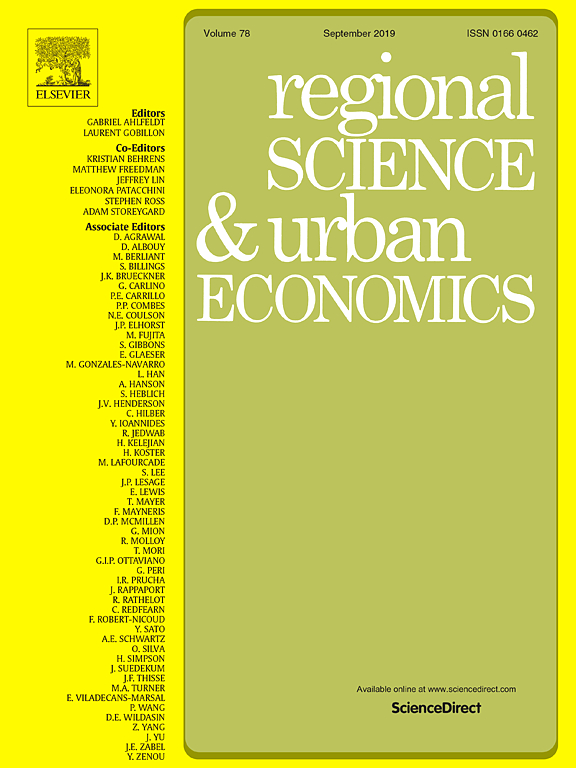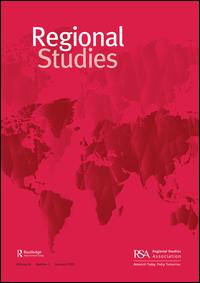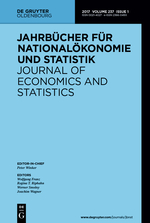
The Regional Effects of a Place-based Policy – Causal Evidence from Germany
in: Regional Science and Urban Economics, November 2019
Abstract
The German government provides discretionary investment grants to structurally weak regions in order to reduce regional inequality. We use a regression discontinuity design that exploits an exogenous discrete jump in the probability of regional actors to receive investment grants to identify the causal effects of the policy. We find positive effects of the programme on district-level gross value-added and productivity growth, but no effects on employment and gross wage growth.

The Impact of Innovation and Innovation Subsidies on Economic Development in German Regions
in: Regional Studies, Nr. 9, 2019
Abstract
Public innovation subsidies in a regional environment are expected to unfold a positive economic impact over time. The focus of this paper is on an assessment of the long-run impact of innovation and innovation subsidies in German regions. This is scrutinized by an estimation approach combining panel model and time-series characteristics and using regional data for the years 1980–2014. The results show that innovation and innovation subsidies in the long run have a positive impact on the economic development of regions in Germany. This supports a long-term strategy for regional and innovation policy.

Public Investment Subsidies and Firm Performance – Evidence from Germany
in: Jahrbücher für Nationalökonomie und Statistik, Nr. 2, 2018
Abstract
This paper assesses firm-level effects of the single largest investment subsidy programme in Germany. The analysis considers grants allocated to firms in East German regions over the period 2007 to 2013 under the regional policy scheme Joint Task ‘Improving Regional Economic Structures’ (GRW). We apply a coarsened exact matching (CEM) in combination with a fixed effects difference-in-differences (FEDiD) estimator to identify the effects of programme participation on the treated firms. For the assessment, we use administrative data from the Federal Statistical Office and the Offices of the Länder to demonstrate that this administrative database offers a huge potential for evidence-based policy advice. The results suggest that investment subsidies have a positive impact on different dimensions of firm development, but do not affect overall firm competitiveness. We find positive short- and medium-run effects on firm employment. The effects on firm turnover remain significant and positive only in the medium-run. Gross fixed capital formation responses positively to GRW funding only during the mean implementation period of the projects but becomes insignificant afterwards. Finally, the effect of GRW-funding on labour productivity remains insignificant throughout the whole period of analysis.



